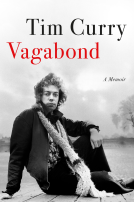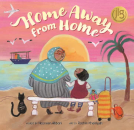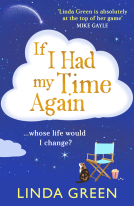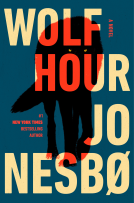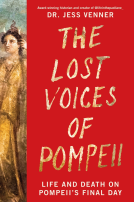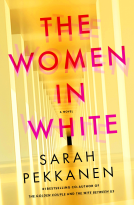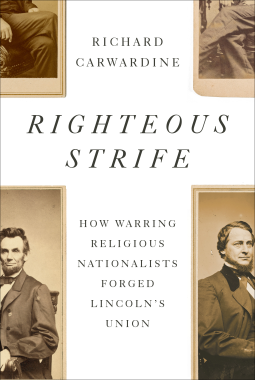
Righteous Strife
How Warring Religious Nationalists Forged Lincoln's Union
by Richard Carwardine
This title was previously available on NetGalley and is now archived.
Send NetGalley books directly to your Kindle or Kindle app
1
To read on a Kindle or Kindle app, please add kindle@netgalley.com as an approved email address to receive files in your Amazon account. Click here for step-by-step instructions.
2
Also find your Kindle email address within your Amazon account, and enter it here.
Pub Date Jan 21 2025 | Archive Date Feb 20 2025
Talking about this book? Use #RighteousStrife #NetGalley. More hashtag tips!
Description
How did slavery figure in God’s plan? Was it the providential role of government to abolish this sin and build a righteous nation? Or did such a mission amount to “religious tyranny” and “pulpit politics,” in an effort to strip the southern states of their God-given rights? In 1861, in an already fracturing nation, the tensions surrounding this moral quandary cracked the United States in half, and even formed rifts within the North itself, where antislavery religious nationalists butted heads with conservative religious nationalists over their visions for America’s future.
At the center of this melee stood Abraham Lincoln, who would turn to his own faith for guidance, proclaiming more days of national fasting and thanksgiving than any other president before or since. These pauses for spiritual reflection provided the inspirational rhetoric and ideological fuel that sustained the war.
In Righteous Strife, Richard Carwardine gives renewed attention to this crucible of contending religious nationalisms, out of which were forged emancipation, Lincoln’s reelection, and his second inaugural address. No understanding of the American Civil War is complete without accounting for this complex dance between church and state—one that continues to define our nation.
Available Editions
| EDITION | Other Format |
| ISBN | 9781400044573 |
| PRICE | $35.00 (USD) |
| PAGES | 640 |
Available on NetGalley
Average rating from 13 members
Featured Reviews
 Bill W, Reviewer
Bill W, Reviewer
The mid-19th century religious divide between Northerners who saw slavery as a sin and Southerners who defended it as a Biblical, positive good is well-known. But that’s just the starting point for this upcoming book about religious sentiment during the Civil War era. Carwardine goes on to examine the religious divide between Union supporters who were either against or ambivalent about slavery and how “emancipators slowly gained the advantage.” And he considers the interplay among all of these citizens and Abraham Lincoln, as he engaged in the push-and-pull of influencing, and being influenced by, public opinion.
Carwardine doesn’t spend too much time on the first point, since the North-South divide is pretty self-evident. The second point, once the religious divide among Union supporters was established, became a bit of a slog every time it was referenced, and I found myself starting to skim the long stretches with almost endless quotes from preachers’ sermons, religious newspaper editorials and religious leaders of all denominations who corresponded with Lincoln.
The strongest part of the book, to me, involved Lincoln, his reaction to these religious sentiments, and his own religious beliefs and statements. Joshua Zeitz explored this topic in last year’s “Lincoln’s God: How Faith Transformed a President and a Nation,” with a well-written and easy-to-follow exploration of Lincoln’s personal beliefs, the increasingly influential role of Christian evangelicalism at that time, and Lincoln’s own role as something of an evangelical leader (who was not necessarily an evangelical himself.)
Carwardine explores similar topics, noting that one political admirer referred to Lincoln as a “half-way clergyman.” Lincoln, he writes, was not “the born-again Christian that many believed he was or wished him to be,” but he “recognized his role and duties as an agent of Providence.” It’s popularly believed that Lincoln “found religion” during the war, but Carwardine points out that Lincoln’s religious references began early, and didn’t just come out of nowhere in his Second Inaugural. He cites many religious references in Lincoln’s public comments beginning with his journey to Washington to be sworn in for the first time, as the duties and responsibilities he faced began to sink in. “The unprecedented national emergency would test his judgment, fortitude, and skill,” he writes. “There need have been no shame in seeking and finding strength from a superintending higher power.”
As to whether Lincoln’s religious references were performative or sincere, they might have been both, but Carwardine ultimately comes down on the side of the latter. “Being seen as an honest man of God gave Lincoln a bank of moral capital on which he could draw,” he acknowledges. So one could say it “looks like political calculation” and that Lincoln’s “providentialism might have been for show.” But his “personal journey in religious faith” was genuine, if incomplete, he concludes. Lincoln was far from a full-fledged evangelical himself, but he did display “a growing belief in a God who intervened in the life of the nation.”
Lincoln’s correspondence and his many White House meetings with religious leaders were more persuasive than performative, Carwardine argues, providing him with “a means of reading opinion and identifying significant shifts in public attitudes.” The devout encouraged his “religious patriotism,” influencing his decision to declare so many days of national fasting and thanksgiving for spiritual reflection and inspiration.
The book’s epilogue swiftly and somewhat awkwardly tries to bring the story to the present day, racing through the history of evangelicalism from then to now, chiding today’s evangelical Christian nationalists as compared to the more racially egalitarian, socially progressive evangelicals who embraced emancipation during Lincoln’s time. It’s a comparison worth making, but one that perhaps deserves more expansive thought than can be contained in an epilogue to a book that’s focused on another time altogether.
In short, then, I found this book to be valuable for its insights about Lincoln, and somewhat less so for its recitation of what seemingly every preacher of every denomination thought about events of the time. So it’s not a leisurely read, but one that has enough perceptive observations within to make it a worthwhile effort.
 Stephanie G, Reviewer
Stephanie G, Reviewer
Thank you to NetGalley for providing me with an e-arc of this book.
Righteous Strife is an engaging look at a period of history that I thought I was familiar with. Looking at the American Civil War through a religious lens was an entirely new perspective that I hadn't explored before, and it was interesting to hear how religion played such a large role in shaping how Lincoln view the War, the Union, and slavery.
Readers who liked this book also liked:
David Levithan; Gabriel Duckels
Nonfiction (Adult), Teens & YA
